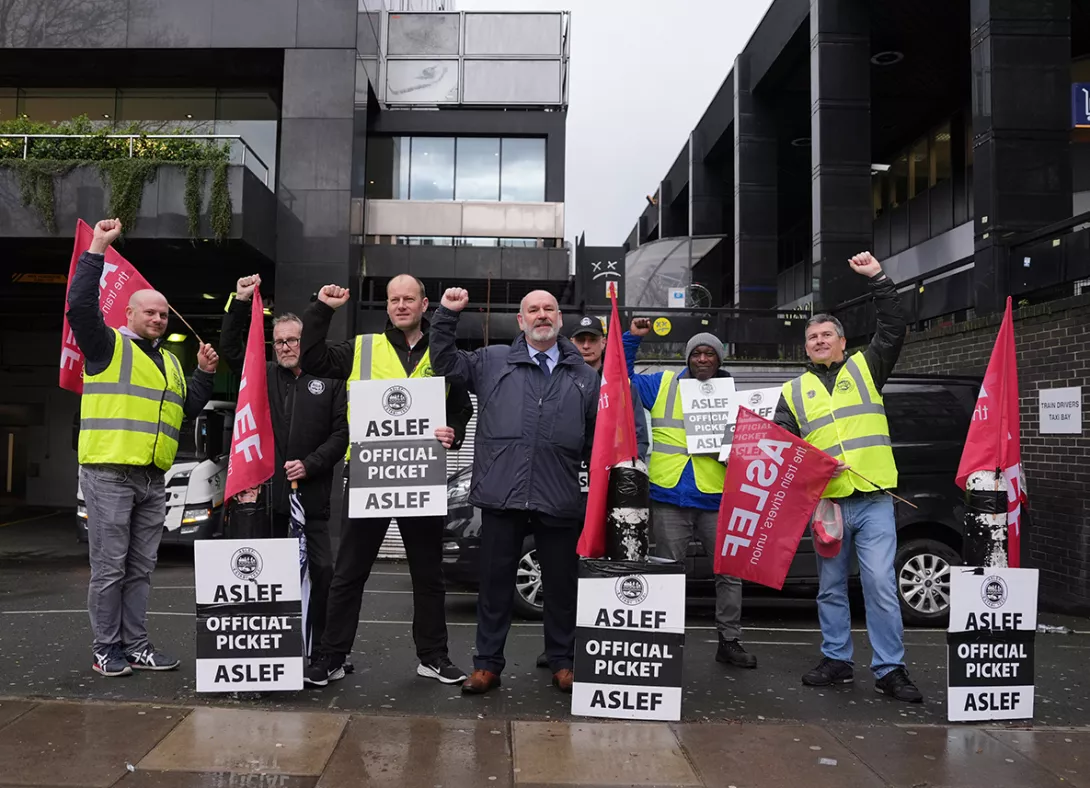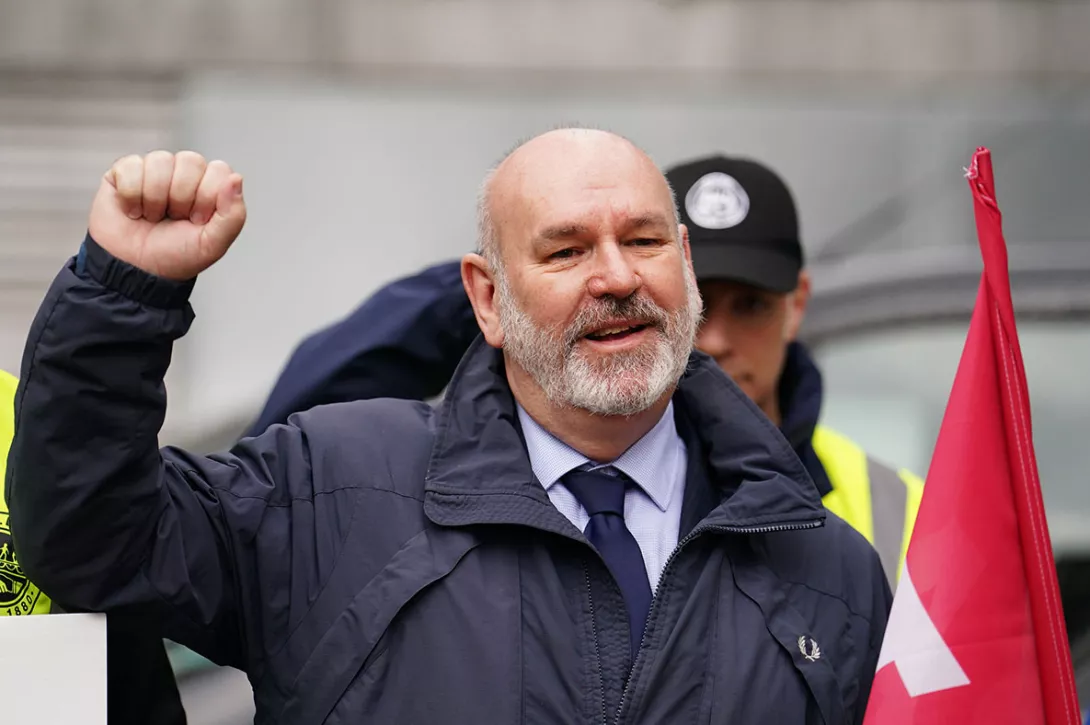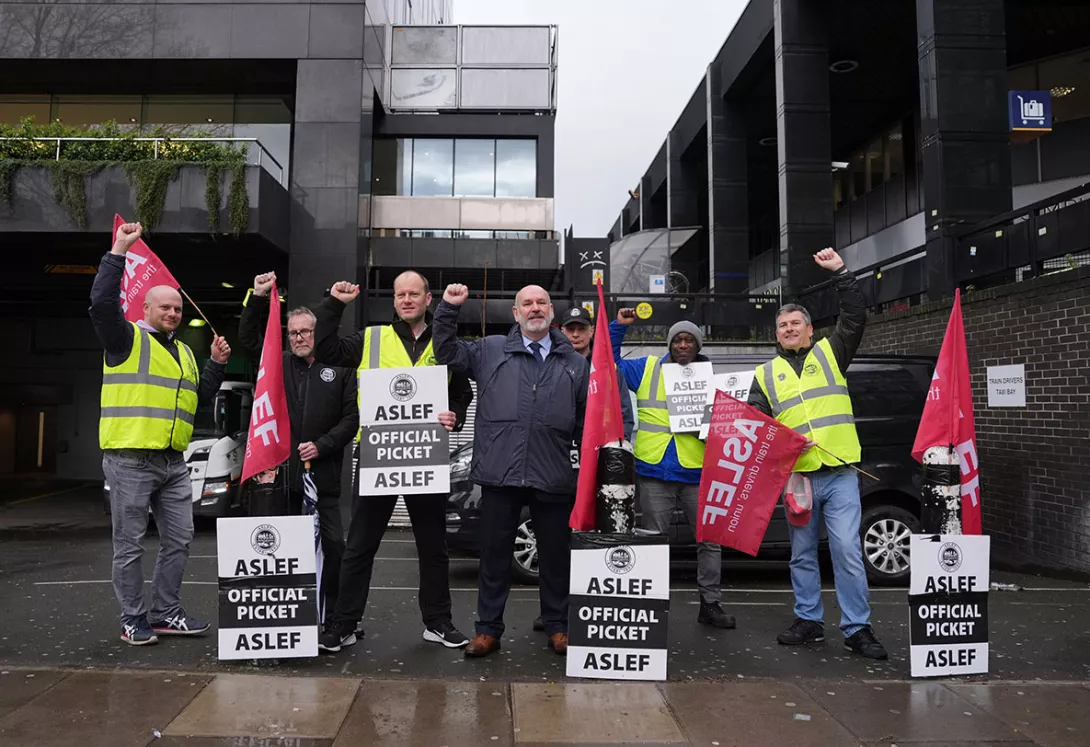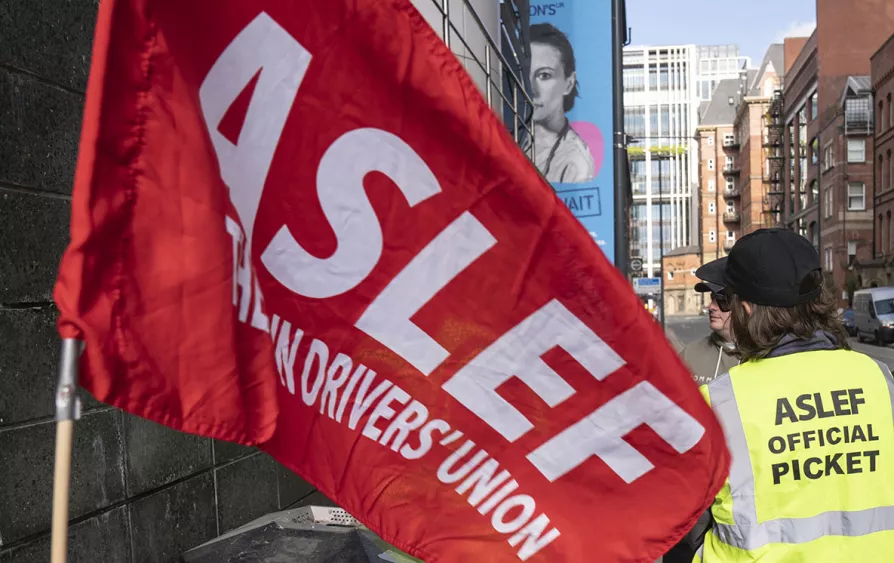VIJAY PRASHAD examines why in 2018 Washington started to take an increasingly belligerent stance towards ‘near peer rivals’ – Russa and China – with far-reaching geopolitical effects
‘I’m proud of the unity shown by our members’
As train drivers prepare for their next round of strike action, Aslef general secretary MICK WHELAN talks to Morning Star reporter Peter Lazenby about the ever-increasing profits of rail privateers and the Tories’ politically motivated intransigence

THE resilience of train drivers in their fight for a pay rise seems to know no limits, and the general secretary of their union Aslef, Mick Whelan, is proud of them.
After 22 months and 17 rounds of strike action they still voted by more than 95 per cent to strike again, after easily surpassing the government-imposed 50 per cent threshold for turnout in union ballots on industrial action.
Tory legislation introducing compulsory ballots on strike action appeared to be based on a Tory fallacy that workers went on strike on the orders of so-called “union barons” like Whelan — not because they had a grievance and were prepared to fight to rectify it.
More from this author

ROS SITWELL reports from a conference held in light of the closure of the Gender Identity and Development Service for children and young people, which explored what went wrong at the service and the evidence base for care

ROS SITWELL reports from the three-day FiLiA conference in Glasgow

ROS SITWELL reports on a communist-initiated event aimed at building unity amid a revived women’s movement

London conference hears women speak out on the consequences of self-ID in sport













